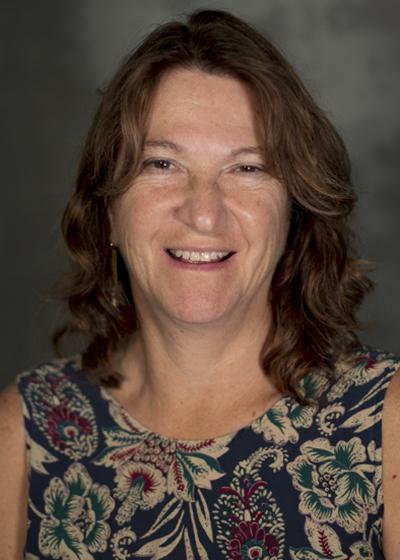- Title: Research Professor
- Department: Department of Geosciences
ABOUT
Q: What are your current research interests?
My work uses the chemical composition of lava to investigate the parts of the planet that we cannot see: the bottoms of the continents and ocean basins, and the deep interior of the mantle. I have projects in several volcanically active areas, including Iceland, East Africa, Turkey, Iran and Saudi Arabia, to help answer questions of Earth evolution.
Q: What lead you to your specific field and when did you know you wanted to pursue a career in your specific field?
I enjoy using reductionist approaches (e.g., microscopic analyses of minerals, isotopic composition of elements present at parts-per-million levels) to investigate processes that operate at enormous scales of distance and time. I like the process of unraveling complex information – it’s like a puzzle where you don’t have an image to work from. The career chose me when I was a senior undergraduate student working on my thesis, and it has captivated me ever since then.
Q: What do you hope students take with them from your classes?
I want my students to think deeply, and to learn to integrate material from one course or one topic with information from other contexts. That process brings the rich perspectives that are needed for facing college, careers and life.
Q: What keeps you going as an educator/researcher?
I have a deep interest in understanding the evolution of continents over geologic time. My most exciting discoveries have been those that showed me why my earlier thinking was wrong, and helped develop new paradigms for figuring out this planet and others. Sharing the power of rigorous thought with students is a compelling part of my effort with every class.
STUDENT RECRUITMENT
Q: What makes the College of Earth and Mineral Sciences unique and why come to Penn State and choose a major in EMS?
EMS provides students with a small-college experience within the large-school opportunities of the institution. Faculty members genuinely care about our students, and like to share the excitement of our research efforts. Our majors lead to many types of employment, so students can figure out what interests them and pursue their own dreams rather than a straight track to a single job market.
Q: Why should students choose a major in your field?
The Geosciences tell us about fundamental processes, such as the evolution of the planet, its atmosphere, and life. It also requires deep and integrative thinking, which is a skill that prepares one for any life endeavor. There are many different job opportunities, but none of them are automatic; students are “required” to engage with their learning along the way.
Q: What do you like most about mentoring students?
I enjoy the growth that takes place in students between the ages of 18-21. This growth is intellectual, emotional, social, and personal. It is an honor to provide support and opportunity along this journey.
PERSONAL
Q: What would people be surprised to learn about you?
I served for 10 years as Associate Vice President for Undergraduate Education at Penn State. I have a wealth of fairly obscure knowledge about programs and opportunities across the institution.
Q: Did you go to college with the intention of getting the job you have now?
If not, briefly explain how you came to the position you're in now at the University. Initially I was hoping to pursue a career either in international development or as a large-animal vet. A near miss from a hoof aimed at my head helped me drop the veterinary dream! With geology, I found that I can be part of international learning and resource development while using my quantitative skills in an academic environment.
Q: What is the most helpful advice you’ve received?
You can have it all – just not all at the same time.
Q: How do you like to spend your free time? (What are your hobbies or interests outside of work?)
I am a life-long horsewoman, so making time for riding and training is important to me. My household also includes a dog, cats and chickens, all of which require a lot of outdoor work that I enjoy.
Q: What professional accomplishments are you most proud of?
My research highlight was a new approach to understanding volcanism in the East African Rift System – our new model suddenly cleared up many minor inconsistencies in data interpretation that had been troubling me for decades. My administrative highlight was implementing baccalaureate program assessment across Penn State. We started a huge number of important conversations about student learning and how to make the college experience more robust.


